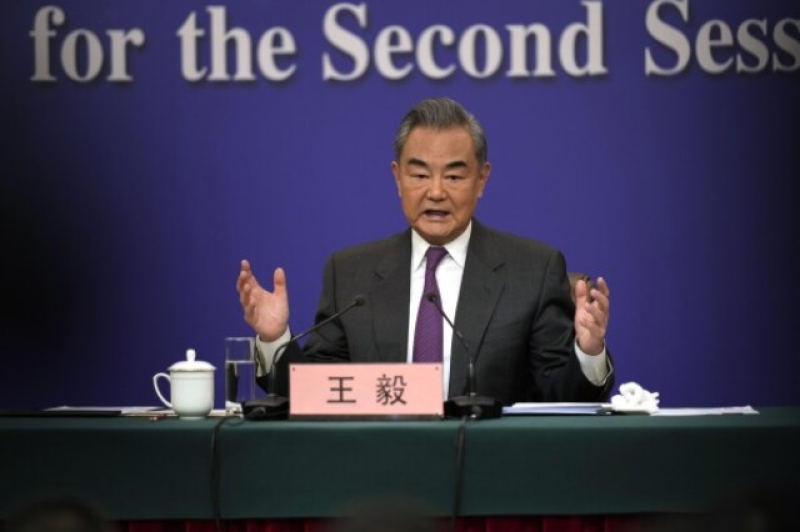- UN Calls for Calm in Bangladesh After Protest Leader’s Killing |
- DMP issues 7 traffic directives for Osman Hadi’s Janaza |
- Vested quarter fuelling chaos to impose new fascism: Fakhrul |
- Hadi’s namaz-e-janaza at 2:30pm Saturday |
- Jashore’s Gadkhali blooms with hope; flowers may fetch Tk4 bn |
US accused of devising tactics to suppress China

US accused of devising tactics to suppress China
BEIJING, Mar 07 (AP/UNB) — China's foreign minister accused the U.S. on Thursday of devising tactics to suppress China's rise and criticized the Biden administration for adding more Chinese companies to its sanctions lists.
Wang Yi, speaking to media during the annual meeting of China's legislature, said that relations with the U.S. have improved since Presidents Xi Jinping and Joe Biden met in November, but that America has not fulfilled its promises.
“If the U.S. always says one thing and does another, where is its credibility as a major power? If the U.S. gets nervous and anxious when it hears the word ‘China,’ where is its confidence as a major power?” he said. “If the U.S. is obsessed with suppressing China, it will eventually harm itself."
Wang, a 70-year-old veteran diplomat who has earned Xi's trust, returned to the foreign minister's post last summer after his successor, Qin Gang, was abruptly dismissed without explanation after a half year on the job.
Analysts had speculated the ruling Communist Party might use the weeklong meeting of the National People's Congress to name a new foreign minister, but that appeared off the table after an agenda released on the eve of the opening session did not include personnel changes.
Wang accused the United States, without mentioning it by name, of stirring up trouble in Taiwan and the South China Sea. China says that self-governing Taiwan is part of China and should be under its control, and it claims a wide swath of the South China Sea, putting it at odds with the Philippines, Vietnam and other Southeast Asian neighbors.
The Philippines and the U.S. have accused China of aggressive tactics in trying to block Philippines ships from reaching reefs and other outcroppings that both sides claim, most recently in a collision between coast guard vessels of both countries this week.
“For unreasonable provocations, we will take just countermeasures,” Wang said. “We also advise certain countries outside the region not to stir up trouble, choose sides, and not to become disruptors and troublemakers in the South China Sea.”
He said countries that insist on maintaining official ties with Taiwan are interfering in China's domestic affairs. Most countries, including the United States, don't have diplomatic ties with Taiwan, but China objects to visits by U.S. lawmakers to the island and U.S. sales of military equipment for its defense.
China will continue to work for peaceful reunification with Taiwan, Wang said, but warned that anyone who supports independence for Taiwan would pay a price. Most Taiwanese prefer to remain separate from China without antagonizing it. They fear Chinese rule could endanger their freedoms and democracy, particularly after China's crackdown on Hong Kong.
“Our bottom line is also very clear,” Wang said. “That is Taiwan will never be allowed to split from the motherland.”

